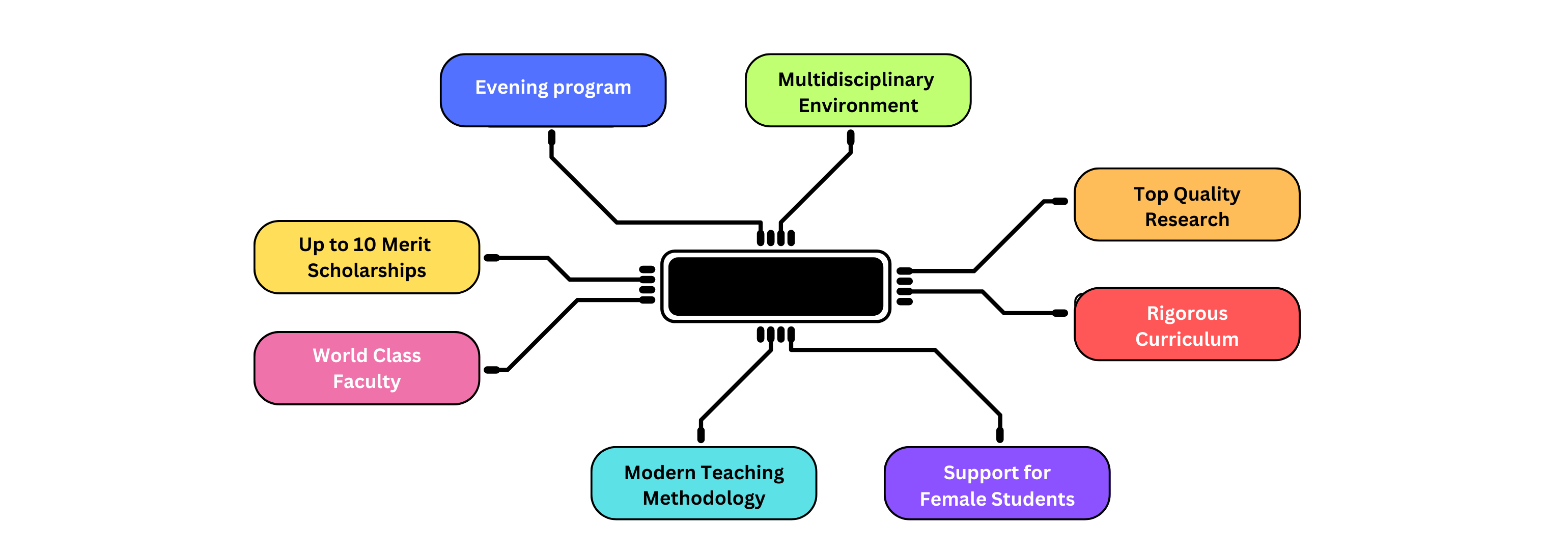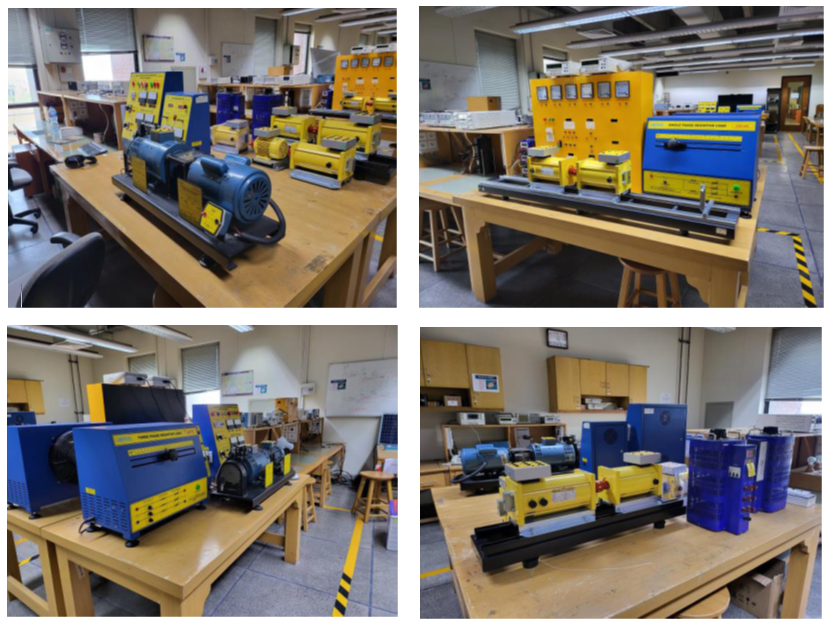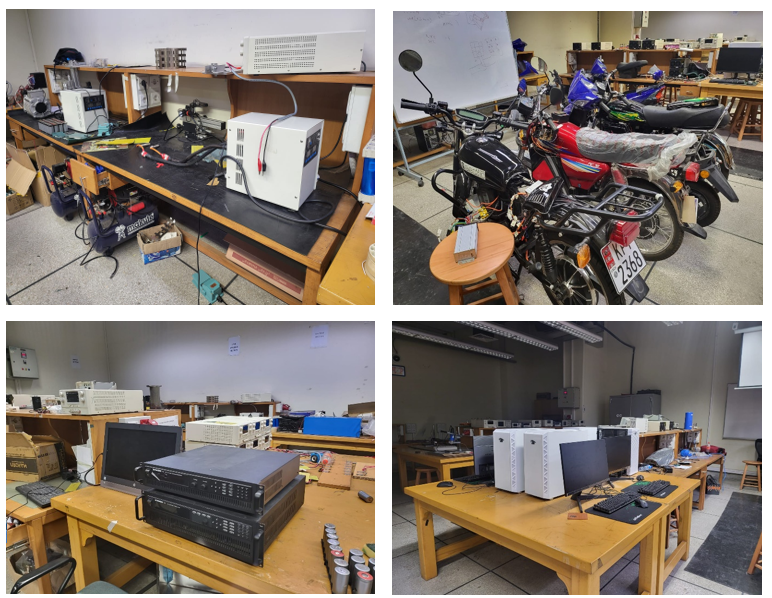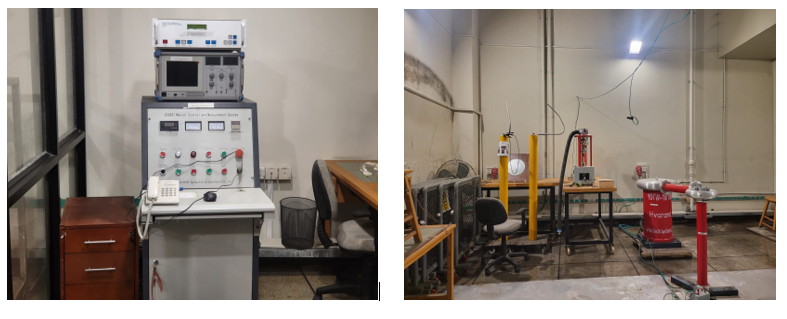MS Power Engineering and Smart Grids

Introduction
Power engineering has been one of the primary fields in Electrical Engineering with increased impetus in the last few years due to a global shift towards renewables and local impetus towards low cost generation and modernization of the national grid. Traditionally, features of electric power systems including design, electric generators, transmission and distribution system components, power flow analysis, system operation, and performance metrics are all covered in a standard electric power systems course. In recent decades, electric power systems have undergone major modernization in response to demands for increased system efficiency, dependability, security, and environmental sustainability. Smart Grid refers to the modernized grid, which incorporates sophisticated sensor technologies, machine learning-based control methods, and integrated communications into existing power systems.
With the changing needs of the power sector, electric power systems courses and programs must also be updated in Electrical Engineering to meet the industry demands for a workforce capable of integrating smart grid technologies such as advanced sensing, control, monitoring, communication, renewable energy, storage, computing, and cybersecurity. Furthermore, these courses should contain hands-on components for ready integration with the industry.
Program Objectives
Department of Electrical Engineering at the Syed Babar Ali School of Science and Engineering (SBASSE) plans to offer a Master in Power Engineering and Smart Grids starting from the Fall 2024 semester. This program will train students in Power, Renewable Energy, Smart Grids, Electricity markets (and more) with hands-on training. The program aims at imparting Engineering Design skills in the evolving domain of Power and Smart Grids. It will also prepare graduates for Pakistan's electricity market transition (CTBCM – bilateral contract market regime). Graduating students will have a detailed exposure to the state-of-the-art tools/software and training for the national and international Power industry.
The primary objective for the program is to:
a) impart Engineering Design skills in Power and Smart Grids and
b) prepare graduates for electricity market transition in Pakistan.
Graduates of the MS Power Engineering and Smart Grids program will be able to respond quickly to changes in power sector and strategically build solutions for evolving power systems, smart grids, and related applications to allow better organizational decision making.
Program Highlights

Target Students
The program is designed for recent EE graduates as well as seasoned industry professionals in power systems engineering and/or smart grids. The suggested curriculum offers a number of opportunities in a variety of dynamic, rewarding, and demanding industries that are frequently in need of an expert for those participants seeking professional progression or change.
Industry/Sectors
Program Specific Labs & Facilities
Electrical Power System Lab
The Electrical Power System Lab is a dedicated research facility focused on the study and development of DC MicroGrid and converter design. It serves as a valuable resource for students and researchers interested in exploring advanced concepts in power systems and converter technology. The lab provides an ideal environment for hands-on experimentation and learning, enabling participants to gain practical skills and theoretical knowledge in their chosen areas of study.

Mitsubishi Power Electronics Research Lab
Mitsubishi Lab is a state-of-the-art research facility dedicated to the study and development of electric vehicles, converter design, and battery design and testing. The lab serves as a hub for students and researchers interested in advancing the field of electric mobility and power electronics. With its cutting-edge equipment and expert instructors, Mitsubishi Lab offers a dynamic learning environment where participants can gain practical skills and in-depth knowledge in their chosen areas of interest.

High Voltage Lab
The laboratory provides students with an in-depth understanding of high voltage systems, phenomena, and their applications. The lab is equipped with advanced instruments and tools to ensure accurate data collection and analysis during experiments. The laboratory experiments aims to explore and analyze various high voltage phenomena and their implications.
The experiments conducted in the Lab provides valuable insights into various high voltage phenomena. The generation and measurement of AC voltages using sphere gaps offered a foundational understanding of AC high voltage systems. The study of air breakdown using different shapes of HV electrodes shed light on the factors influencing air breakdown strength. The investigation of breakdown in transformer oil and its susceptibility to moisture and impurities is crucial in understanding transformer reliability. Lastly, the study of corona discharge in point-plane electrodes configuration deepened our understanding of corona phenomena under AC/DC voltages.

For more information about the programme structure and curriculum, reach out to us at academicaffairs.sbasse@lums.edu.pk.


